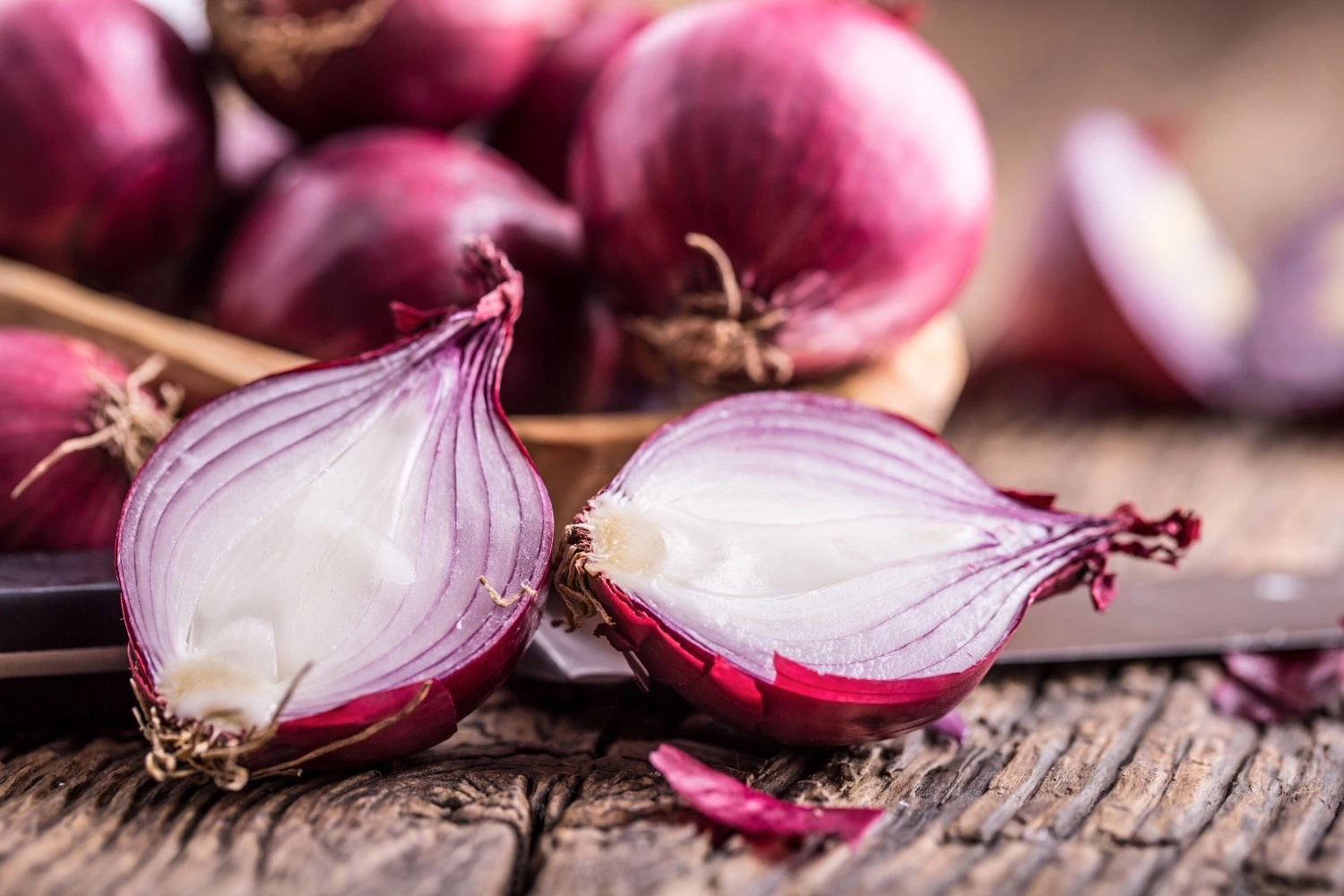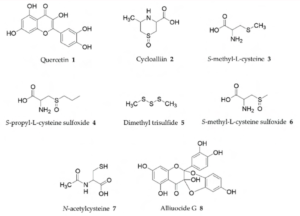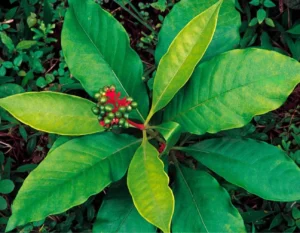Allium cepa, also known as onion, is a bulbous perennial herb in the Amaryllidaceae family. It is the most widely cultivated species of the genus Allium, and is native to Central Asia. Onions are grown and used throughout the world, and are an essential ingredient in many cuisines.
Allium cepa contains a number of bioactive compounds, including quercetin, anthocyanins, and thiosulfinates. These compounds have been shown to have a variety of health benefits, including:
- Antibacterial activity
- Anti-inflammatory activity
- Antioxidant activity
- Anticancer activity
- Blood sugar regulation
- Heart health
- Brain health
Allium cepa is also a good source of dietary Fiber, vitamins C and K, and minerals such as potassium, phosphorus, and magnesium.
The extract of Allium cepa is used in traditional medicine to treat a variety of conditions, including:
- Colds and flu
- Coughs and congestion
- High blood pressure
- Heart disease
- Cancer
- Diabetes
- Alzheimer’s disease
More research is needed to fully understand the health benefits of Allium cepa. However, the available evidence suggests that it is a healthy food that can be beneficial for overall health.
Here are some additional details about the health benefits of Allium cepa:
- Antibacterial activity: Onion extract has been shown to kill a variety of bacteria, including E. coli, Streptococcus pneumoniae, and Pseudomonas aeruginosa. This may be due to the presence of quercetin and other antioxidants in onions.
- Anti-inflammatory activity: Onion extract has been shown to reduce inflammation in the body. This may be due to the presence of quercetin and other Flavonoids.
- Antioxidant activity: Onions are a good source of antioxidants, which can help protect the body from damage caused by free radicals.
- Anticancer activity: Onion extract has been shown to have anti-cancer properties in animal studies. However, more research is needed to confirm these findings in humans.
- Blood sugar regulation: Onions may help to regulate blood sugar levels. This may be due to the presence of quercetin and other compounds that can improve insulin sensitivity.
- Heart health: Onions may help to improve heart health by lowering cholesterol levels and reducing inflammation.
- Brain health: Onions may help to improve brain health by reducing the risk of Alzheimer’s disease and other neurodegenerative disorders.







Reviews
There are no reviews yet.